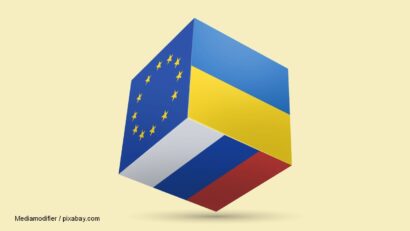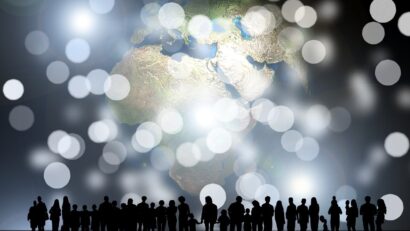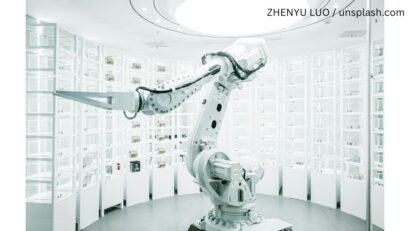The Lessons of a Pandemic
The coronavirus crisis has brought to the surface vulnerabilities, has shaken to their foundation economies all over the world, and raised question marks about the future

Corina Cristea, 04.09.2020, 14:00
The coronavirus crisis has brought to the surface vulnerabilities, has shaken to their foundation economies all over the world, and raised question marks about the future. Many people have died, life is not the same, and if the initial stage the main losses were in human lives, what follows has to do with the economic crisis, which is the worst since the Great Depression, according to experts. The future power architecture will be marked by the way in which the world’s economies recover, and each shift will affect everyone’s life. Ovidiu Nahoi, editor-in-chief with the Romanian section of Radio France International, ran an analysis of the possible consequences:
“It is hard to say who will emerge weaker and who has the premises to rise faster. Of course we want the liberal and the creative economies to develop and recover faster than the authoritarian economies. At the beginning of the crisis, and here we are talking about the information war, there were voices that said that authoritarian regimes would be more efficient in managing the crisis than democratic regimes. This statement is starting to lose credibility. We will be seeing how we will get back on our feet from now on, and what consumption will be like, how people will change their habits, what the economic organization will be going forward, and how much money is needed. No one can tell right now how fast the recovery will occur and what it will look like. We know that crisis is followed by recovery. We went through a financial crisis, followed by a decade of growth. Let us hope that this pattern will be the same this time. Even economists have a hard time telling how fast that would occur.
Economy professor Mircea Cosea talked about changes in what he calls the value chain. The value chain is a notion that appeared in Western thinking, mainly American, based on an older theory stating that most products have a production chain of 35 to 40 contributors:
“In today’s economy, nothing can be produced in a single country. The issue is leadership, meaning who leads the value chain, which will end up leading the world in the end, because the value chain has components with differing values. The one assembling the product earns less than the one that makes a small part of the product, but that uses higher technology. For the moment, the US holds this leadership, which contributes even to a Chinese phone with ideas, concepts, and research that the Chinese don’t have. If things worked 20 more years like this, up to the point where made in China was made by China, then China would have become the world leader. This process of America’s rebound, sometimes controversial, such as Mr. Trump’s trade war, started a few years ago in order to stop China somehow. I don’t know if this virus came from some snake or some laboratory, we don’t know, but it recounts this value chain, in the sense that supremacy is held by countries that think, versus countries that work.
The pandemic has many lessons to teach, according to EuroMP Crisitian Busoi, referring mainly to the situation in the EU. Maybe the most important, he says, is that, even though people have bee touting for years the importance of the healthcare system, we have seen that no one was prepared for such an ordeal:
“I hope things change, because now we have the coronavirus crisis, but we can have more pandemics coming. There are theories that over the following decades these will be the most serious threats to health, stability, and the world economy. Also, let us not forget that, beyond a pandemic, we have not yet overcome the HIV-AIDS virus, and there are still many people who die of cancer. We have challenges we will have to address, and maybe this crisis will have decision makers in every country pay more attention to the healthcare system. An even bigger challenge may turn out to be the economy, restarting the economies all over the EU. There has never been such a challenge since the end of WWII, and such pressure on economies. Come analysts and economists believe that the challenge is even greater, because that was also an event that changed everything, but it occurred over a longer period of time, and not all economies shut down at the same time.
Now, however, almost the entire EU economy shut down, with some branches slowing almost to a halt. Euro MP Cristian Busoi says that, even though there is a community rescue plan for Europe, which includes a major capital infusion, and which overlaps plans made by individual countries, it remains to be seen how big of a challenge recovery is, depending on the duration of the crisis.





























